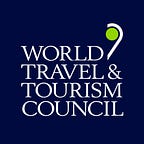A structured global approach is needed to combat human trafficking
On this ‘World Day Against Trafficking in Persons’, we’d like to honour survivors by recognising those working every day to eradicate this form of modern-day slavery and recommitting ourselves to this urgent task.
The outbreak of COVID-19, with its imposed restrictions all over the world, may have se t some difficulties for first responders of human trafficking to assist victims.
Still, there are and have been people working in different sectors whose contribution has been overlooked and unrecognised. These are the people who identify, support, counsel and seek justice for victims of trafficking and challenges daily the impunity of traffickers.
But a global problem like trafficking needs a global solution.
Human trafficking generates an estimate of $150 billion in illegal profits annually. In comparative terms that’s the equivalent to the entire tourism economy of Brazil.
Human trafficking is a global problem where every year, millions of victims fall into the hands of traffickers. Trafficking victimises millions of women, men, and children, including those most vulnerable amongst migrant communities, asylum-seekers, refugees and stateless persons. And is commonly associated with many other forms of exploitation, such as sexual exploitation, forced and bonded labour, forced marriages and all practices similar to slavery.
Unfortunately, trafficking relies on the travel industry to operate — not only across borders but also within — using legitimate operations to illegally move people around and ultimately to exploit vulnerable people and children.
As a sector, we have the responsibility and power to make a difference at all levels of the supply chain.
In order to proactively combat human trafficking, WTTC believes that strong and co-ordinated action is needed in four key areas:
1. Prevention — to increase industry and consumer awareness of human trafficking. It is proven that the more we know, the more we can do to prevent this crime.
2. Protection — to educate and train employees and travellers on how to identify and report suspected cases.
3. Action — to encourage governments to enact and enforce legislation which recognises human trafficking as a crime throughout the entire chain, and develop resources and support needed, such as national hotlines.
4. Support — to assist, employability training and employment opportunities to survivors.
Realising that many WTTC Member companies and sector associations are already very active in this fight, the aim of WTTC’s Human Trafficking Task Force is to leverage our position to facilitate information exchange and to coordinate efforts across the private sector, while strengthening cooperation with the public sector and civil society.
The commitment of this Task Force is led by our Chairman Chris Nassetta — Hilton’s President & CEO, followed by the rest of the Members of the Task Force including AIG Travel, Airbnb, American Express Global Business Travel, The Bicester Village Shopping Collection, Ctrip International, Carlson & CWT, Emirates, Expedia Group, Ingle International Inc., JTB Corp, Las Vegas Convention and Visitor Authority, Marriott International, Sabre Corporation, Silversea, Thomas Cook Group, TUI Group and Uber.
Today more than ever, we want to highlight the need and importance of government action, support and leadership to take us beyond awareness-raising to end human trafficking and protect the most vulnerable and exploited.
If you would like to engage with WTTC in the fight to end Human Trafficking or to learn more about our activities in this area, please get in touch.
This post was written by Veronica Magoja, Head of Social, World Travel & Tourism Council.
